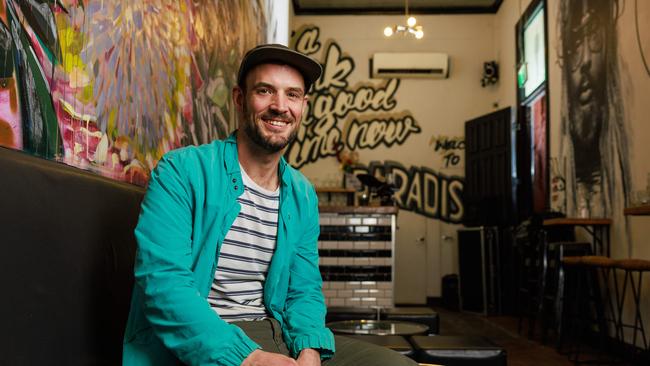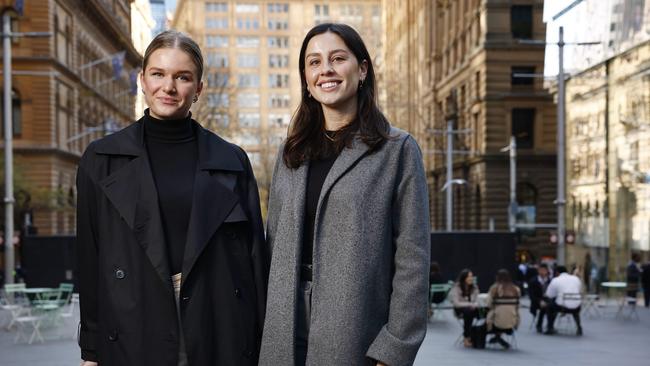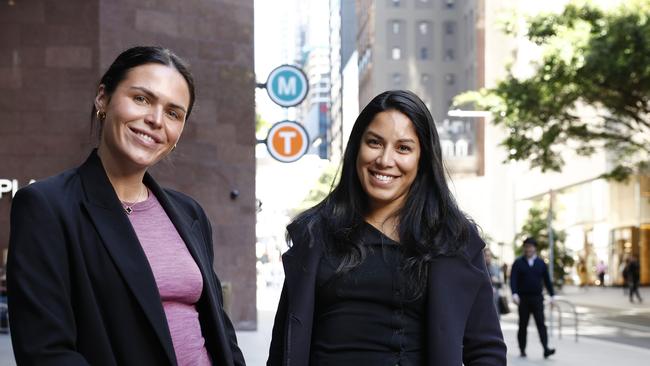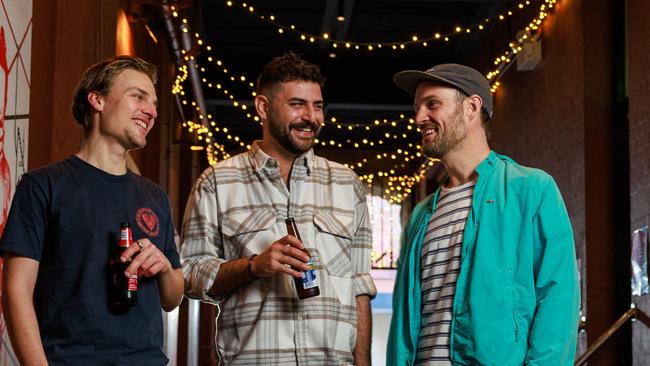Business calls for a round the clock Metro to reignite Sydney’s nightlife
Sydney’s new Metro is just days away from opening, but desperate bar and restaurant owners are demanding a key change to keep the city in line with other global cities.
NSW
Don't miss out on the headlines from NSW. Followed categories will be added to My News.
Desperate bar and restaurant owners are demanding the NSW Government cash in on the new $21.6 billion Metro under Sydney by running services 24 hours a day and revolutionising the city’s ailing nightlife.
The new Metro City line – which will run from Sydenham to Chatswood where it will connect to the existing North West Metro – is set to open on August 4, with driverless trains running to 1am on weekdays and 2.30am on weekends. Initially, the line will finish earlier than that while the new system “beds in’’.
Businesses fighting for survival in the CBD have called for those hours to be extended, arguing it has the potential to save the city’s nightlife via a massive injection of late-night patrons. A City of Sydney commissioned study has found improved public transport at night was needed to help the city’s night-time turnover to it an annual worth of $30 billion by 2030.

Nick White, the president of YCK Laneways — a group of 20 bars, restaurants and boutique hotels on Sydney’s York, Clarence and Kent Streets — said shutting the new Metro at 2.30am on weekends represented “an opportunity gone missing”.
“One of the reasons the patronage isn’t there is there’s just not the transport connections,” Mr White, who is also the director of boutique bar Since I Left You, said.
“In New York, Copenhagen and London you can get 24 hour transport anywhere – it’s such a vital part of a 24 hour economy, people being able to move around safely.”
He added a 24-hour Metro would “make a big difference” to staff, who are often at venues long after they close to the public.
“Staff (can stay) more than an hour after closing time doing the pack down, and at present their transport options are very limited when they leave,” he said.
Data compiled by Pathzz mobility analytics platform between June 2 and July 6 this year shows that patrons under 20 years of age make up just 7.5 per cent of late night visitation in the City of Sydney, while 20-24 year olds make up only 8.3 per cent.

Night Time Industries Association CEO Mick Gibb said the figures showed “that the argument that late night public transportation will only be used by young revellers is a furphy”.
While the government has maintained a 24-hour Metro is off the table for now, citing the need to do overnight maintenance, Mr Gibbs said “if we want to be a global city we have to walk and chew gum at the same time – we can’t let something like logistics stand in the way of activating a 24 hour economy and all the benefits that come from that”.
The data from Pathzz, shared exclusively with The Telegraph, also shows more than half of the people coming out late at night (53 per cent) are earning less than $80,000 per year – meaning a cheap way home was a necessity.
“Offering a way for people to get home late that doesn’t break the bank will go a long way to helping the bars, clubs, restaurants and dedicated live music venues keep their doors open and their businesses alive,” Mr Gibb said.

Avenue Group Sydney managing director Anthony Barbaro said late night public transport would also make 24 hour licences more attractive for businesses.
One of his six venues, Avenue on Sussex Street, has already forfeited a 24 hour licence because patronage didn’t justify it.
“I’m all for revitalising the city, it makes me sad just walking through the city and seeing how quiet it is after 8pm at night,” he said.
“At our Avenue on Sussex site … we didn’t extend (our licence) past midnight because it’s not worthwhile, there’s not enough people.”
A NSW Government spokesman ruled out running the Metro around the clock, saying Sydney Metro “undertakes maintenance while trains are not operating overnight”.
“Running 24 hour services on weekends would reduce the time available for maintenance activities, which could result in reduced services at other times,” he said.

Premier Chris Minns earlier this month also backed that stance, saying the cost of running the Metro was “finely-tuned”.
“They’re driverless, but that doesn’t mean there’s not a lot of staff on the stations or the trains … you can imagine the transport budget is already pretty stretched at the moment,” he said.
Eamon Waterford, CEO of the Committee for Sydney, implored the state’s leaders to push through with a 24-hour service, saying “This isn’t a question of benefit-cost ratios, it’s a question of what sort of city we aspire to be”.
“Any standard business case will probably tell you this isn’t financially feasible – but if we want to tell the world Sydney is open for business, 24-hours a day, we should be having a conversation about this,” he said.
Giselle Kelly, who works near the Metro’s new Martin Place station, backed the idea of an all-night service.
“I do think it should be 24 hours, especially in the Sydney CBD now, it’d allow bars to stay open and people to stay out,” she said.
Tara Elias, a Northern Suburbs resident said it would be a boon for night-life.
“Everyone wants Sydney to be a bigger city so this will drive bars, clubs and bring our economy back,” she said.
Chloe Duncan added it’d provided a safe option to get home.
“I think it will be really great to go out and not think about how you are going to get home and what time you have to get back,” she said.
Do you have a story for The Daily Telegraph? Message 0481 056 618 or email tips@dailytelegraph.com.au




